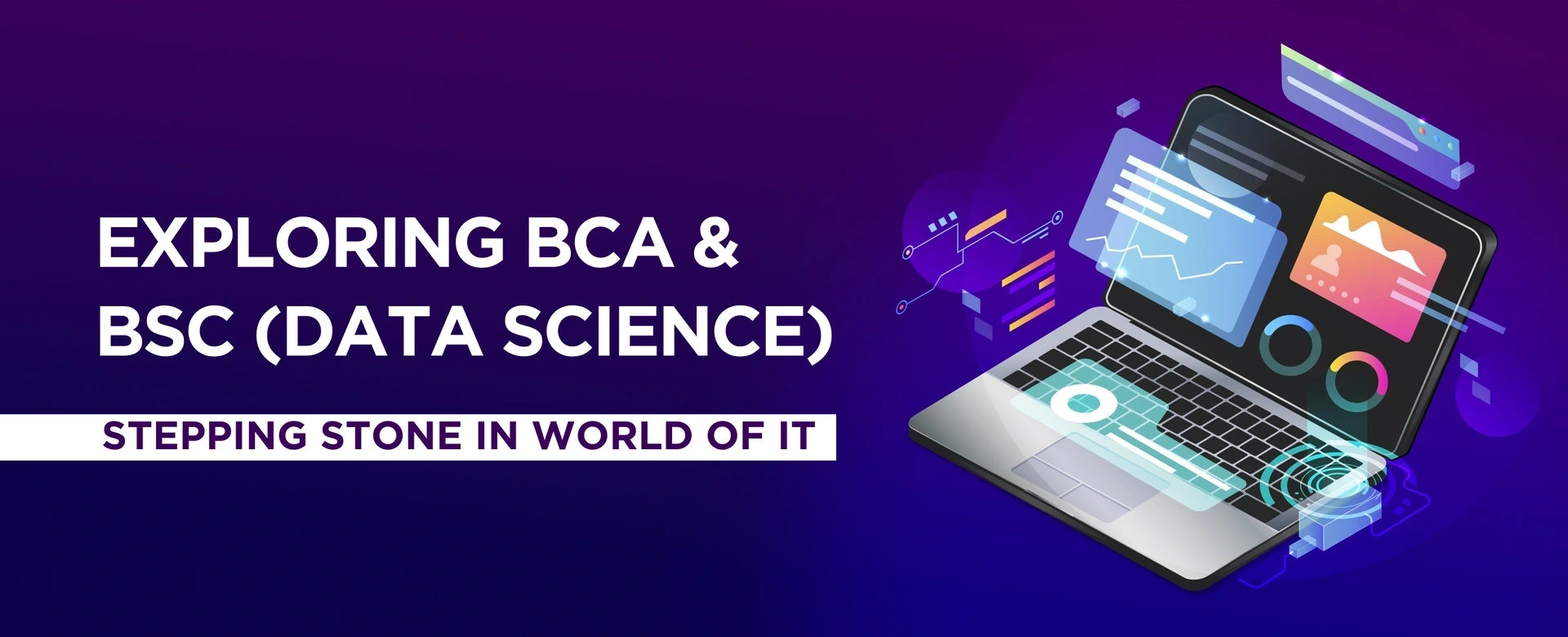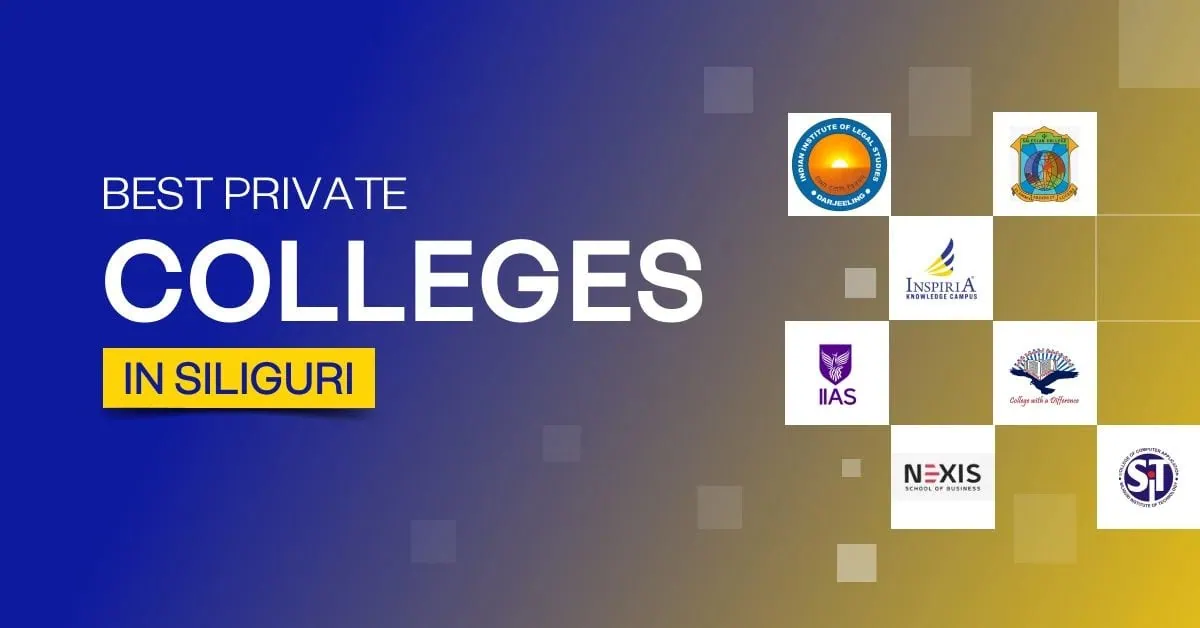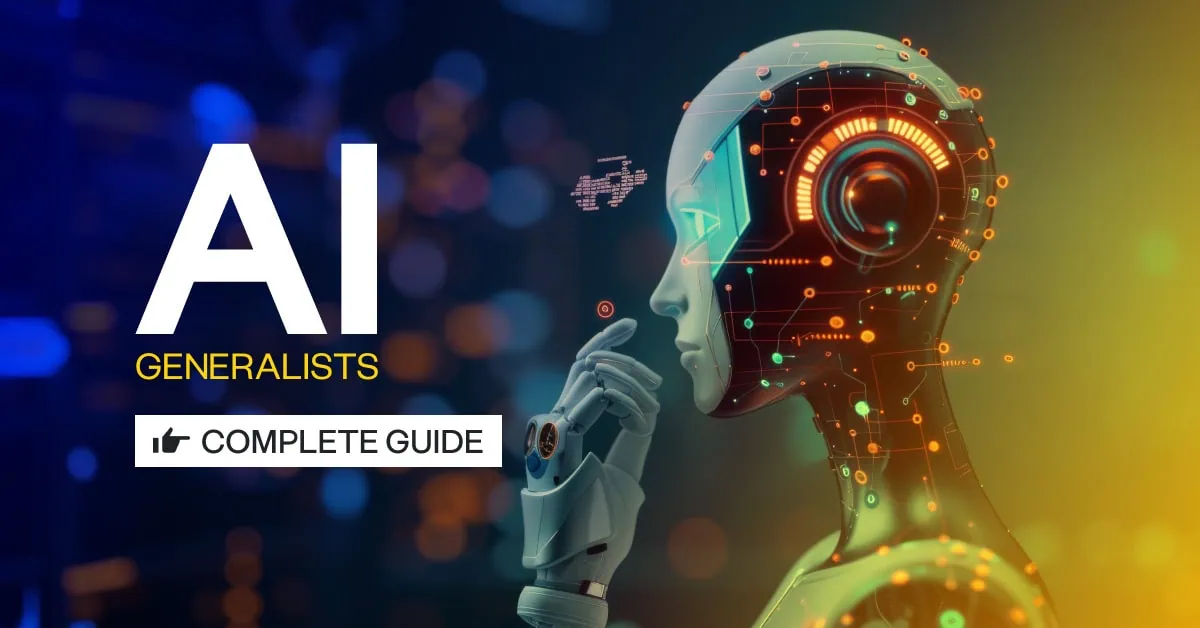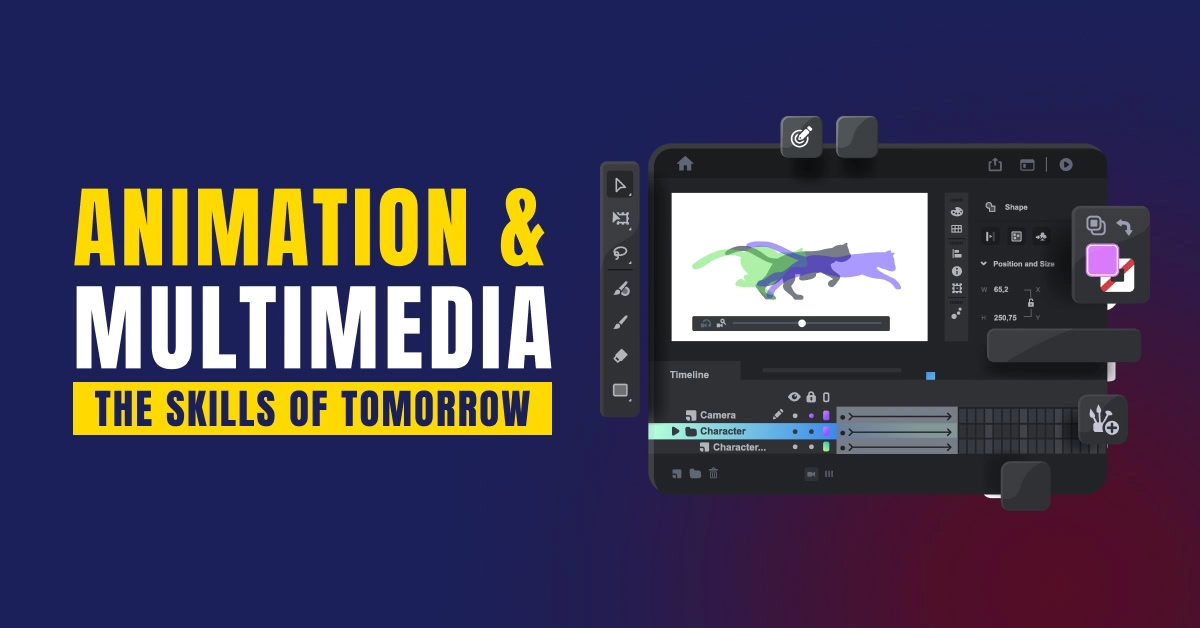In today’s dynamic digital landscape, higher education in computer applications (BCA course) and data science extends beyond traditional coding roles, offering a gateway to diverse and expansive career opportunities. Inspiria Knowledge Campus, renowned for excellence, is dedicated to nurturing technical proficiency and a comprehensive skill set for BCA and Data Science student as these skills are essential for thriving in dynamic professional environments.
What is the scope of the BCA and Data Science courses?
This blog explores the numerous benefits of the BCA course and the immense benefits students would benefit from after pursuing the BCA = Bachelor of Computer Applications or B.Sc in Data Science degree with us. The blog highlights our emphasis on holistic development, a comprehensive curriculum, advanced technological proficiency, business and management skills, soft skills development, real-world application, hands-on experience, industry partnerships and internships, mentorship and guidance, professional portfolio building, career preparation, state-of-the-art facilities, and robust student support services.
Through our cutting-edge programs, immersive learning experiences, and supportive ecosystem, we equip students to become BCA graduates and excel in their chosen fields and make meaningful contributions to the ever-evolving digital landscape.
BCA/Data Science at Inspiria Knowledge Campus
Inspiria Knowledge Campus is committed to nurturing talent and fostering innovation. With state-of-the-art facilities, experienced faculty. The BCA course is designed to meet industry standards, ensuring you are job-ready upon graduation. Through internships, projects, and hands-on training, you’ll develop a robust skill set that extends beyond coding.
For BCA and Data Science students, our focus on holistic development also enhances your soft skills, such as critical thinking, problem-solving, and effective communication, which are essential in today’s job market. The dynamic field of data science offers vast career opportunities in sectors like finance, healthcare, and technology, while a BCA degree opens doors to numerous roles in software development, IT services, and more.
What is the BCA Course?
What is BCA? The Bachelor of Computer Application (BCA) course introduces undergraduate students to the vast field of Computer Science and Information Technology and enables students to build a career in computer science and the IT field. The BCA course is the most popular UG courses being pursued by students today in the field of Computer applications.
BCA graduates focus on the latest development in the field of computer science and constantly keep themselves updated in database management systems, software engineering, basic computer applications and artificial intelligence. The course includes topics such as Programming languages, data structures, software development, database administration, networking, and other relevant topics which are frequently covered in the curriculum.
Is BCA a good course after 12th?
BCA – Bachelor of Computer Applications is one of the most sought-after courses in Computers for graduation in a huge number of students who want to shape their careers in the world of Information Technology and its allied services. A large number of aspirants looking for career options after the course in BCA often complete their Masters in the same field.
However BCA Bachelor of Computer Application itself is the course which has enough potential to generate employment for fresh graduates right after their college. Enrolling into BCA enables a student to get exposed to a great number of opportunities in the job sectors such a banking, govt. Offices apart from the very obvious IT Industry.
In India, good many students often undertake positions in the IT industry after BCA as there are now ample scopes to shape their career after they complete their undergraduate course in computer applications. An obvious good news is that recently, even organizations in the IT/ITES fields including some big names as TCS, Wipro and Cognizant are showing increasing interest in recruiting graduates with a BCA degree for various posts in their organizations.
BCA with Data Science
The combination of BCA (Bachelor of Computer Applications) and knowledge of data analysis with R programming opens up a plethora of opportunities in the job market in the area of exploratory data analysis. Many industries, including finance, healthcare, marketing, and e-commerce, require professionals who can analyze large datasets and derive meaningful insights.
For admission to the BCA/ Data Science degree course, you need to pass your Class 12 examinations from any recognized board, preferably with a Mathematics at the plus 2 level, though it is not a must.
Comprehensive Curriculum with a Holistic Approach
At Inspiria Knowledge Campus, admission to BCA Bachelor of Computer Application and B.Sc Data Science programs would be immensely beneficial as these programs are crafted to deliver a well-rounded education that goes far beyond traditional coding skills. The comprehensive curriculum is designed to ensure that students not only become proficient in technical aspects but also develop a broad set of competencies that are crucial in the modern tech landscape. BCA course normally is a three year course but with the start of the New Education Policy (NEP), the degree course has been extended to four years. For admission to the four-year course, you need the same eligibility and similar is the case for admission to the B.Sc Data Science course.
Core Technical Skills
- Programming Languages: Students are introduced to a variety of programming languages such as Python, Java, C, etc. This diverse knowledge base enables them to tackle different types of projects and challenges effectively.
- Database Management: Courses in database design and management ensure students understand how to store, retrieve, and manage data efficiently, which is critical in both BCA and data science fields.
- Software Engineering: Students learn the principles of software development, including design, development, testing, and maintenance of software systems, ensuring they can create reliable and scalable software solutions.
Advanced Technological Proficiency
- Data Analysis and Visualization: Courses focus on teaching students how to collect, process, and analyze data. They learn to use tools like R, Tableau, and Power BI to visualize data, which helps in making informed business decisions.
- Artificial Intelligence and Machine Learning: The curriculum includes in-depth studies of AI and ML algorithms, enabling students to develop intelligent systems. They work on real-world problems, creating predictive models and learning about neural networks, natural language processing, and more.
- Cybersecurity: Understanding cybersecurity is essential as data breaches and cyber threats become more prevalent. Students are trained in the latest security protocols, ethical hacking, and network security measures to protect sensitive information.
Business and Management Skills
- Project Management: Courses in project management equip students with skills to plan, execute, and oversee projects efficiently.
- Business Analysis: Understanding the business context is crucial for BCA course students. Students are taught how to analyze business needs, propose tech solutions, and ensure that technical projects align with business objectives.
Soft Skills Development
- Communication Skills: Effective communication is key to success in any career. Students are trained in both written and verbal communication to ensure they can convey technical information clearly to non-technical stakeholders.
- Teamwork and Collaboration: Many projects require working in teams. Courses and practical projects emphasize collaboration, teaching students how to work effectively in diverse teams, manage conflicts, and leverage each member’s strengths.
- Critical Thinking and Problem Solving: The curriculum is designed to enhance students’ analytical abilities. They are encouraged to think critically, solve complex problems, and develop innovative solutions.
- Real-World Application
- Internships and Industry Projects: We ensure that students gain practical experience through internships and industry collaborations. These opportunities allow students to apply their classroom knowledge to real-world problems, gain insights into industry practices, and build professional networks.
- Capstone Projects: As a culmination of their studies, students undertake capstone projects that involve extensive research and application of their skills to solve real-world issues. These projects often lead to innovations and can serve as a significant portfolio piece for future job applications.
Hands-On Experience and Real-world Projects
At Inspiria Knowledge Campus, we believe that true learning happens when theory is applied in real-world contexts. That’s why our approach to education emphasizes hands-on experience and the completion of real-world projects. Through this approach, the BCA course enables students to not only grasp theoretical concepts but also develop the practical skills and confidence needed to thrive in their careers.
Application of Classroom Learning
Hands-on experience complements classroom learning by providing students with opportunities to apply what they’ve learned in a tangible setting. Whether it’s programming concepts, data analysis techniques, or project management methodologies, students get to see how these concepts translate into real-world scenarios.
Real-world Projects Across Disciplines
Our curriculum integrates real-world projects across disciplines, ensuring that students from various programs have the chance to work collaboratively and gain insights from diverse perspectives. Some of the projects often simulate the challenges and dynamics of professional environments, preparing students for the complexities they’ll encounter in their careers.
Industry Partnerships and Internships
We foster strong partnerships with industry leaders, providing students with access to internship opportunities where they can gain hands-on experience in real-world settings. These internships not only allow students to apply their skills but also expose them to industry practices, trends, and expectations, giving them a competitive edge in the job market.
Experiential Learning Opportunities
In addition to internships, students participate in experiential learning opportunities such as coding competitions, case competitions, and research projects. These activities encourage creativity, innovation, and critical thinking while giving students the chance to showcase their talents and problem-solving abilities.
Mentorship and Guidance
Throughout their projects and internships, students receive mentorship and guidance from faculty members and industry professionals. This personalized support helps students navigate challenges, refine their skills, and make meaningful contributions to their projects.
Building a Professional Portfolio
The hands-on experience gained through real-world projects enables students to build a professional portfolio that showcases their skills, accomplishments, and contributions. This portfolio serves as a valuable asset when applying for jobs or furthering their education, demonstrating to prospective employers or academic institutions the practical skills and experiences they’ve acquired.
Preparation for Career Success
By immersing students in real-world projects, we prepare them for the demands of their future careers. They graduate not only with theoretical knowledge but also with the practical skills, confidence, and adaptability needed to excel in their chosen fields. Our goal is to produce graduates who are ready to make an immediate impact and contribute to the advancement of their industries.
State-of-the-Art Facilities and Resources
At Inspiria Knowledge Campus, we understand the importance of providing students with access to cutting-edge facilities and resources to support their educational journey. Our state-of-the-art campus is equipped with the latest technology and amenities, creating an environment conducive to learning, innovation, and collaboration.
Modern Infrastructure
Our campus features modern infrastructure designed to meet the needs of today’s tech-savvy learners. From spacious classrooms equipped with multimedia facilities to well-equipped laboratories and workshops, every aspect of our campus is designed to facilitate an immersive learning experience.
Advanced Laboratories
We have invested in advanced laboratories tailored to specific disciplines such as computer science, data science, robotics, and electronics. These laboratories are equipped with state-of-the-art equipment and software tools for students aiming to pursue a career in Computer Science. The Data Science/BCA course enables students to conduct experiments, simulations, and research projects under the guidance of experienced faculty members.
Collaborative Spaces
We understand the value of collaboration and teamwork in fostering innovation and creativity. That’s why our campus features collaborative spaces such as project rooms, brainstorming zones, and innovation hubs where students can collaborate on projects, exchange ideas, and work together to solve complex problems.
Library and Learning Resources
Our campus library is more than just a repository of books and journals. It is a dynamic learning space equipped with a vast collection of print and digital resources spanning various disciplines. In addition to academic resources, the library also provides access to online databases, e-books, and multimedia materials to support students’ research and self-directed learning.
Student Support Services
In addition to academic resources, we offer a range of student support services to ensure that every student has the opportunity to succeed. From academic advising and counseling to accommodation assistance and extracurricular activities, we strive to create a supportive and inclusive campus environment where students can thrive academically, personally, and professionally.
Career opportunities in Bachelor of Computer Applications and B.Sc Data Science
With technology playing an increasingly important role in many industries, Bachelor of Computer Application provides a wide range of job prospects. For a BCA graduate the following popular and sought-after professional paths can be pursued:
Developer/Engineer of Software:
- Provide, create, and manage software programs.
- Utilize programming languages like C++, Python, Java, and others.
- Work together to develop creative software solutions with cross-functional teams.
Web developer:
- Develop and construct websites and web apps
- Use frameworks for the back end (Rail on Rails, Django, Node.js) and front end (HTML, CSS, and JavaScript).
- Assure user-friendly and responsive interfaces.
Mobile App Developer:
- Create applications for mobile platforms like iOS (Swift) and Android (Java/Kotlin).
- Together with other developers and designers, create captivating mobile applications.
Database Administrator:
- Design, develop, and manage databases to guarantee data security and integrity.
- Enhance database efficiency and resolve problems.
- Use database management systems such as Oracle, PostgreSQL, or MySQL.
Network engineers and administrators:
- Track network performance and resolve problems.
- Put security measures in place to fend off online attacks.
Cybersecurity Analyst:
- Put security measures in place to protect networks and computer systems.
- Keep an eye out for security breaches and look into any that happen.
- Create and put into effect security policies and procedures.
Systems Analyst:
- Assess and examine current computer programs and systems.
- Compile user needs and suggest enhancements.
- Close the gap between technical stakeholders and those who are not.
IT Project Manager:
- Control project finances, schedules, and resources.
- Coordinate, manage, and carry out IT projects from start to finish.
- Make sure the project’s aims line up with the goals of the organization.
UI/UX designer:
- Create user interfaces and experiences for websites and applications.
- Work together with developers to make sure that design elements are integrated smoothly.
Cloud Solutions Architect:
- Using AWS, Azure, or Google Cloud, create and implement cloud-based solutions.
- Improve the scalability, cost-effectiveness, and performance of your cloud infrastructure.
Engineers in robotics:
- Create and design robotic systems for a range of uses.
- Attempt to integrate the software and physical components.
Scholar/Researcher:
- Make scholarly research contributions to the subject of BCA course.
- Mentor students and teach in educational institutions.
Conclusion
In conclusion, take your future to new heights beyond coding with our BCA course or Data Science degree from Inspiria Knowledge Campus. Admission to the Bachelor of Computer Course is on merit basis and there are no entrance exams. For good students BCA admission should be a problem for any good institute including in Inspiria Knowledge Campus.By enrolling in these forward-thinking programs, BCA graduates will gain access to a comprehensive education designed to equip them with the skills and knowledge needed to excel in the ever-evolving tech landscape in India.
Whether you aspire to become a proficient coder, a data analyst, or a tech entrepreneur, the BCA course and our Data Science course offers the perfect blend of theoretical knowledge and practical experience. Seize the opportunity to make a career in the world of software development and Data Science for a bright future and making a significant impact in the world of technology.
Embark on a transformative educational journey that will not only prepare you for a rewarding career but also inspire you to lead and innovate in the tech world. Seize the opportunity to shape your future and make a significant impact in the world of technology. Your journey to new heights starts here.








